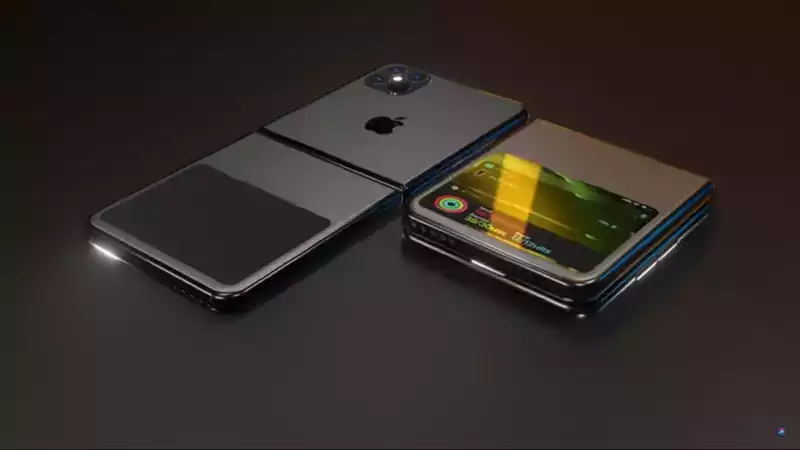There is no foldable iPhone yet, but I feel it is inevitable that Apple will eventually transform its smartphone into a flexible device. There are several possible ways to do this, but one recently announced design is clearly a model that Samsung's Galaxy Z Flip should emulate.
This "iPhone Flip" design was created by #iOS beta news (via BGR); instead of a vertical fold that allows the iPhone to open like a tablet, it uses the same horizontal phone to make the regular-sized iPhone smaller.
The Z Flip has an external cover screen, but unlike the large display on the front of Samsung's Galaxy Fold, it is very small and designed for notifications only. This concept provides a moderately sized external panel that displays iOS 13's Today view and allows users to scroll through selected widgets without opening the phone.
Parts of this design are taken from the upcoming iPhone 12. We are of course talking about that rear quad camera block with a LiDAR depth sensor in the lower right corner, as rumored for the iPhone 12 Pro and iPhone 12 Pro Max.
Even more unusual is the inner selfie camera, which is a single punch-hole notch. This is exactly what the Z Flip (and Samsung's other flagship models like the Galaxy Note 10 and Galaxy S20) does, but it is a move that Apple is unlikely to make in the next few years.
This concept would stick with Face ID as the unlocking method for the time being, and would require some sort of notch to accommodate the extra infrared scanning system that Face ID requires. Unless Apple begins to adopt a sub-display fingerprint scanner or some sort of side-mounted sensor, it is unlikely that this will happen.
While we wait for the iPhone Flip and other Apple foldables to become a reality, we have the iPhone 12 to look forward to. It is expected to be unveiled in September and will consist of four models in three different sizes. all four iPhone 12s will feature 5G connectivity and Apple's new A14 chipset, and the iPhone 12 Pros will have a LiDAR depth sensor in the rear camera array, possibly a 120 Hz refresh rate display.










Comments